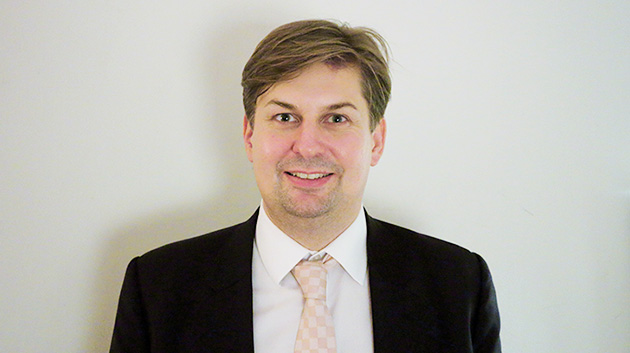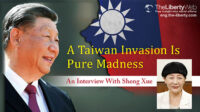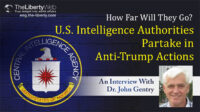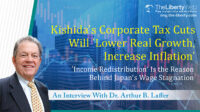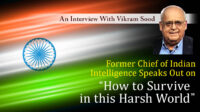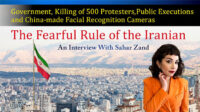An Emerging Alternative in German Politics
An interview with Maximilian Krah, a member of the Alternative for Germany party
The recent influx of refugees from the Middle East has been a controversial issue in German politics. After Chancellor Angela Merkel introduced an open-door policy, her party, the Christian Democratic Union of Germany (CDU), suffered plummeting approval rates. At the time a new party, Alternative for Germany (AfD), gained momentum in some local elections. The AfD is often regarded as part of the surging populism movement in Europe. In anticipation of the upcoming national election in September, we interviewed Maximilian Krah, an AfD political from Dresden. He left the CDU last year in protest against Merkel’s migrant policy.
Why Krah Joined the AfD
Maximilian Krah
German politician, lawyer and entrepreneur. Graduated from Colombia Business School in New York and London Business School.
Interviewer:
Motohisa Fujii
Director General of International Politics Division, Happy Science
Fujii: Firstly, you are a well-known German politician who criticized Chancellor Angela Merkel, and left the CDU in September 2016. You then joined the Alternative for Germany (AfD). Why did you do this?
Krah: Usually, in most countries, you have one left wing and one right wing party. The CDU is combined with the conservative, liberal and Christian politicians. Under Merkel, the CDU has gone to the left … more, and more, and more. They made an open border policy. They made an economic policy that is increasing taxes. They made a currency policy that is devaluing the Euro and supporting the European central bank. They don’t do anything, which you could say is conservative. So, when you have reached a point where you want to stay true to your principles and values, you have to leave the party.
The AfD is a new party. It’s a start up party. It was founded exactly because CDU is leaving the conservative field. There should be one party which is acceptable for conservatives. This is the AfD, and it’s the alternative for Germany, because Merkel usually says, “There is no alternative to my policies”. We are the alternative and that’s why the name has stuck.
Fujii: And it was also an “alternative” for you.
Krah: Yes.
The AfD’s Euro and Immigration policy
Fujii: The AfD is an emerging party in German politics and has gained momentum recently. Is that right?
Krah: Yes, they had momentum. However, right now they have a lot of conflict within. I guess every new party has a lot of conflict until it is consolidated. Right now, there is conflict in the leadership and so the momentum has stopped. But I expect that the AfD will come into the Parliament and there’ll be a strong opposition to Merkel’s policies.
Fujii: What do you think is the most important agenda for the AfD?
Krah: The most important thing is to get the immigration under control to restore the rule of law, and to find a way to leave the Euro as it is today, because the Euro is ruining the lives of the German people. It is bringing the country into a dependency on struggling economies in the South, which is dangerous.
A Sign of Hope
Fujii: You sometimes re-tweet Trump’s Twitter messages. How do you see the Trump administration? Sometimes it is regarded as a populist movement.
Krah: It is possible for people to change politics with elections. There is a fantastic sign of hope. His agenda is neither conservative nor liberal – it is just common sense. He has a common sense agenda. That means if someone is illegal, we have to bring them out of the country. That is common sense.
Common sense is to produce within the country. Common sense is not to make policies for minorities and lobby groups, but to make policies for the whole country. He is simply a common sense politician. It is a sign of hope that common sense will come back to European policies too.
A Positive Attitude Toward German History
Fujii: How do you see Trump’s typical agendas such as immigration policy and “law and order”?
Krah: There’s a lot of resistance against him from the establishment. But he’s a strong president and an entrepreneur. I guess he knows what to do. He definitely will change the situation. I think he will change it for the better.
Fujii: Germans are said to have a “guilt feeling” about the events of World War II. Do you think Germany has a potential power to overcome it?
Krah: That is the most controversial question. No one is openly discussing it. It is true that if Germany wants to survive, it has to rediscover the positive aspect of history. It has to bring their traditions back into honour. This is not the case today. So, the country can only become healthy again and survive as a nation, if it has a positive attitude to their own history. Right now, the liberals minimize the history of World War II. This is not healthy.
The European Union Can’t Survive
Fujii: What do you see for the future of the European Union? The AfD is the only anti-European Union party in Germany.
Krah: Yes, but the European Union depends on the economy. As long as Germany is willing to pay for everything, even for the debt of Italy and France, it will exist. However, the moment it breaks out economically, the European Union as we know it now, will collapse as well. But there will always be a kind of European community. Right now, it’s such a superstate that rules over the nation state. This comes to an end when it becomes too expensive, or when the people don’t want it anymore. Sooner or later, the system can’t survive because of the economy.
The Greek Economy Issue
Fujii: How do you see the Greek economy issue?
Krah: Greece is a burden, but it is small compared to Italy. So, Germany can pay for Greece. It does that already.
Fujii: So, you think it’s not a very big issue?
Krah: It is an issue because it shows that no one takes the European Treaty seriously. However, the European Union will not collapse because of Greece.
Fujii: Greece was forced to take an austerity policy.
Krah: Yes, but Greece isn’t able to do that. It is a lie that they will do that. The politicians say, “we want to reach austerity”, but they don’t do anything. It’s all talk and no action. They just promise it but they don’t get it.
The National Election in September
Fujii: Do you think Chancellor Angela Merkel can win in the national election in September?
Krah: She will win the election in 2017. She will remain Chancellor until she steps down. After she has stepped down, there will be no one who has the preconditions to become Chancellor. So, it will become unstable after she resigns.
Fujii: In some recent local elections, the AfD gained the second majority of popular votes. What do you expect of the AfD in the next national election?
Krah: It’s important that the AfD joins the Parliament, but it needs more time.
Fujii: Thank you so much for your time.

